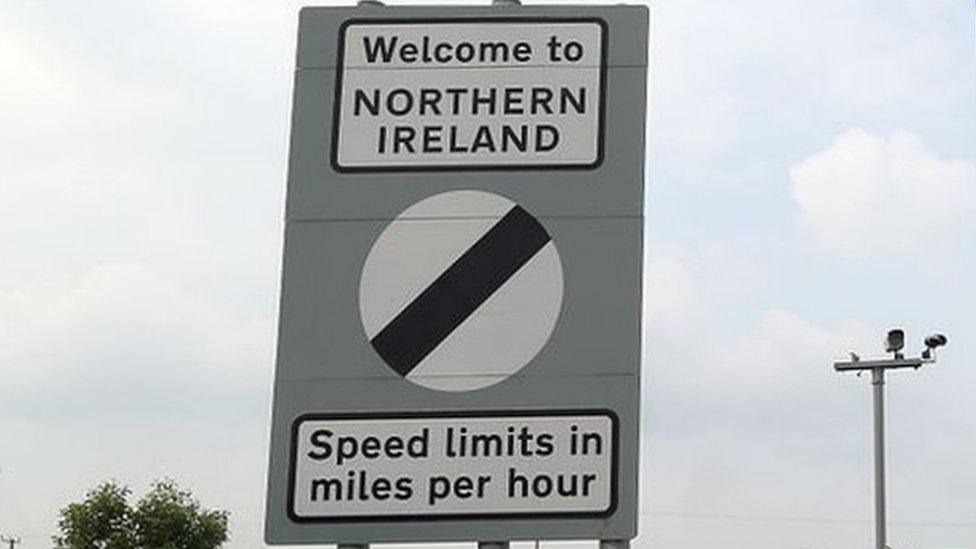Brexit: Irish border councils to work together
- Published
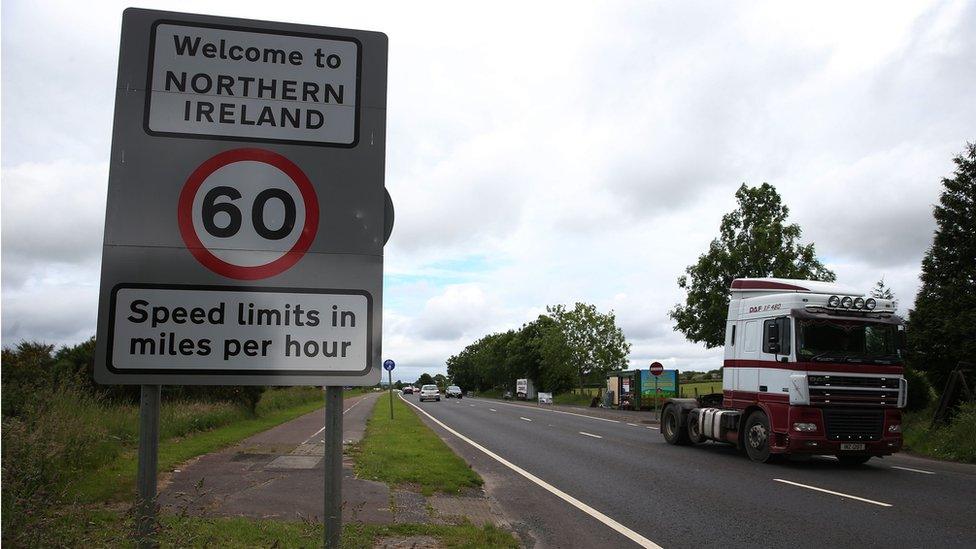
The representatives from border councils met in Enniskillen
Councils along the Irish border have said they will work together to ensure their common concerns are addressed during Brexit negotiations.
They met to discuss a report that sets out the risks and opportunities to the border area after the UK leaves the EU.
The study found that some of the weakest economies on the island of Ireland are along the border.
These areas are most in need of protection against any negative impacts of Brexit, the report added.
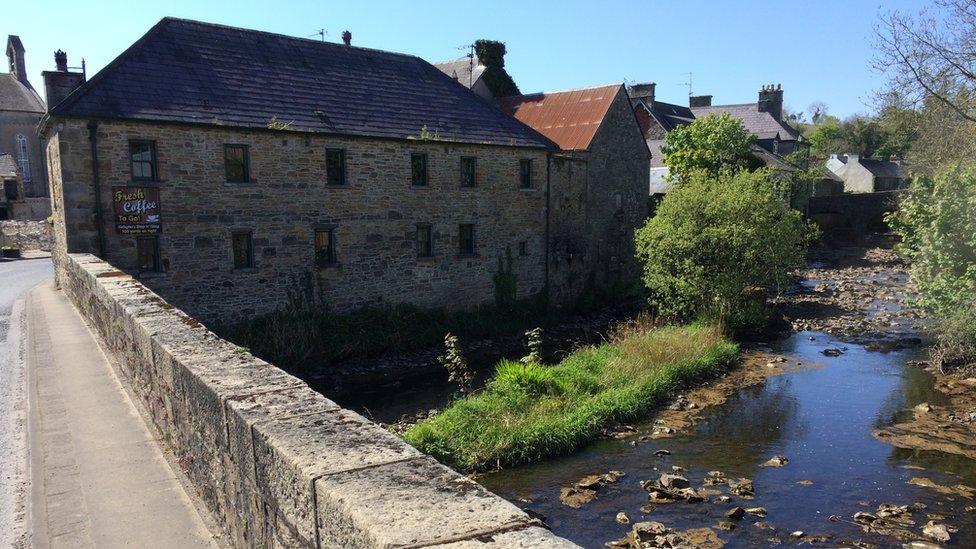
The bridge across the River Termon divides Pettigo, marking the border between Counties Fermanagh and Donegal
The Ulster University Economic Policy Centre study said while the proposed shape of Brexit is becoming much clearer, the risk posed or opportunities presented remain a matter of speculation and will need to be revised on an ongoing basis.
Lobby group
It states that border businesses rely more on the 3bn euros (£2.5bn) cross-border trade and Republic of Ireland/GB trade rather than exports to the rest of the EU or further afield.
This trade is dominated by sales of goods by the agri-food, building materials and chemicals sectors which are exposed to risks of significant tariffs and non-tariff barriers, such as an end to common standards.
The report said EU funding, which is worth upwards of 5bn euros (£4.2bn) to the border corridor until 2020, will depend on mitigation from other funding sources.
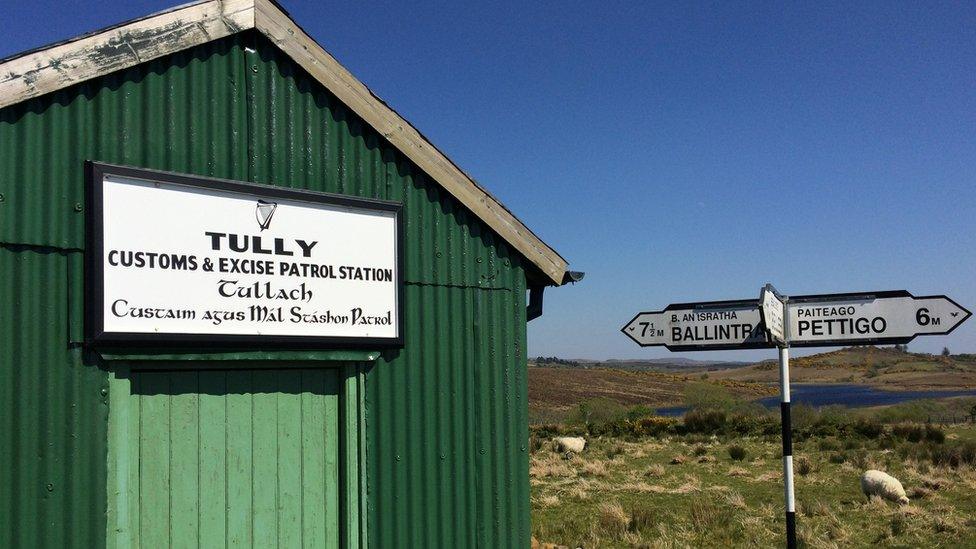
An old customs hut dating back to the 1920s
This money, ranging from Common Agricultural Policy and skills development programmes, to cross-border and peace funds, will end for Northern Ireland after Brexit.
Foreign direct investment has delivered more than 7,000 jobs to the area in the past five years, and Brexit will bring risks and large opportunities depending on access to the EU market, the report said.
It said: "Like cross-border shopping, this is a competitive area for councils although it may need to be explored how to adopt a joint approach to sell the corridor as a whole in the context of Brexit".
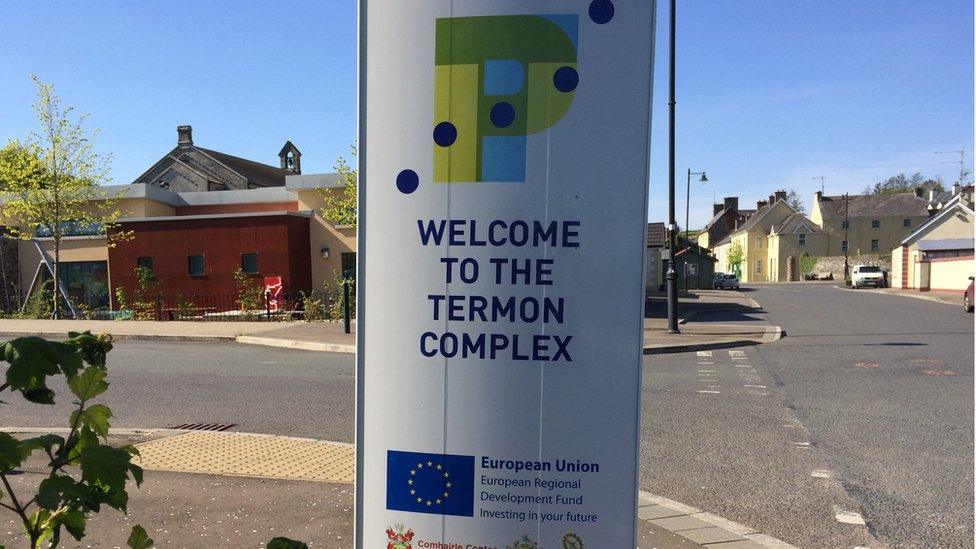
The Termon Complex, a centre for sport and entertainment, was paid for by the EU peace fund
In 2015 almost one million cross-border journeys were made every week at border crossings to access work, education and other services.
Freedom of movement is also critical for the more than three million visitors to the border corridor in 2015 whose expenditure amounted to more than 600m euros (£507m).
The report recommended that councils work collectively as a lobby group to show that the border corridor is going to be most affected by Brexit and to have their voices heard in the negotiations.
Meanwhile, the European Union's chief Brexit negotiator, Michel Barnier, will address the Dáil (Irish Parliament) next Thursday.
The honour of addressing the Dáil and Seanad (Senate) is usually reserved for visiting presidents and prime ministers.
Leaders of the Opposition and other groups are expected to make statements after Mr Barnier's address to a joint sitting of the Dáil and Seanad.
The move comes after the Oireachtas had received a positive initial response to an informal request some weeks ago.
- Published30 December 2020

- Published29 March 2017

- Published28 March 2017
